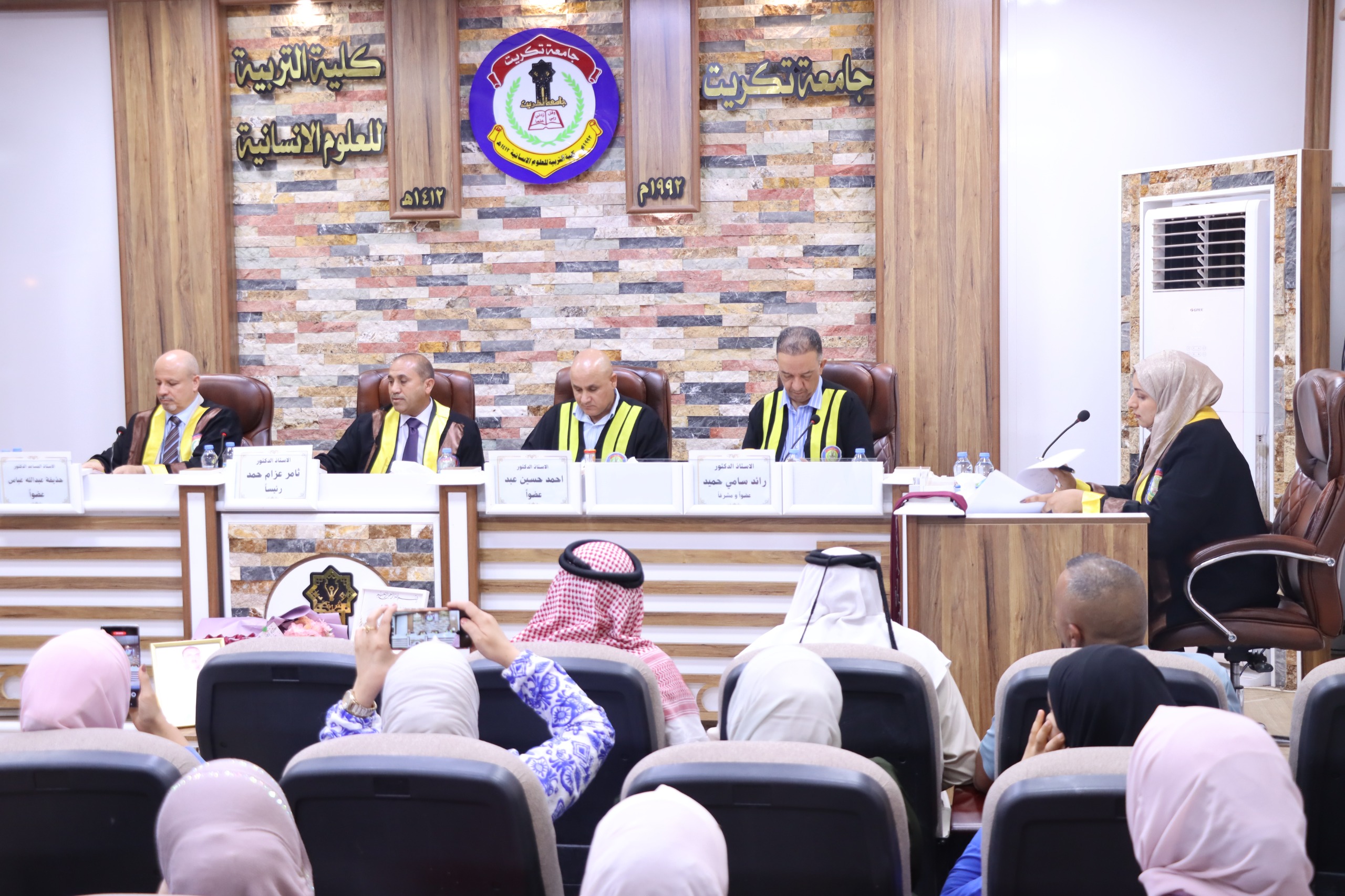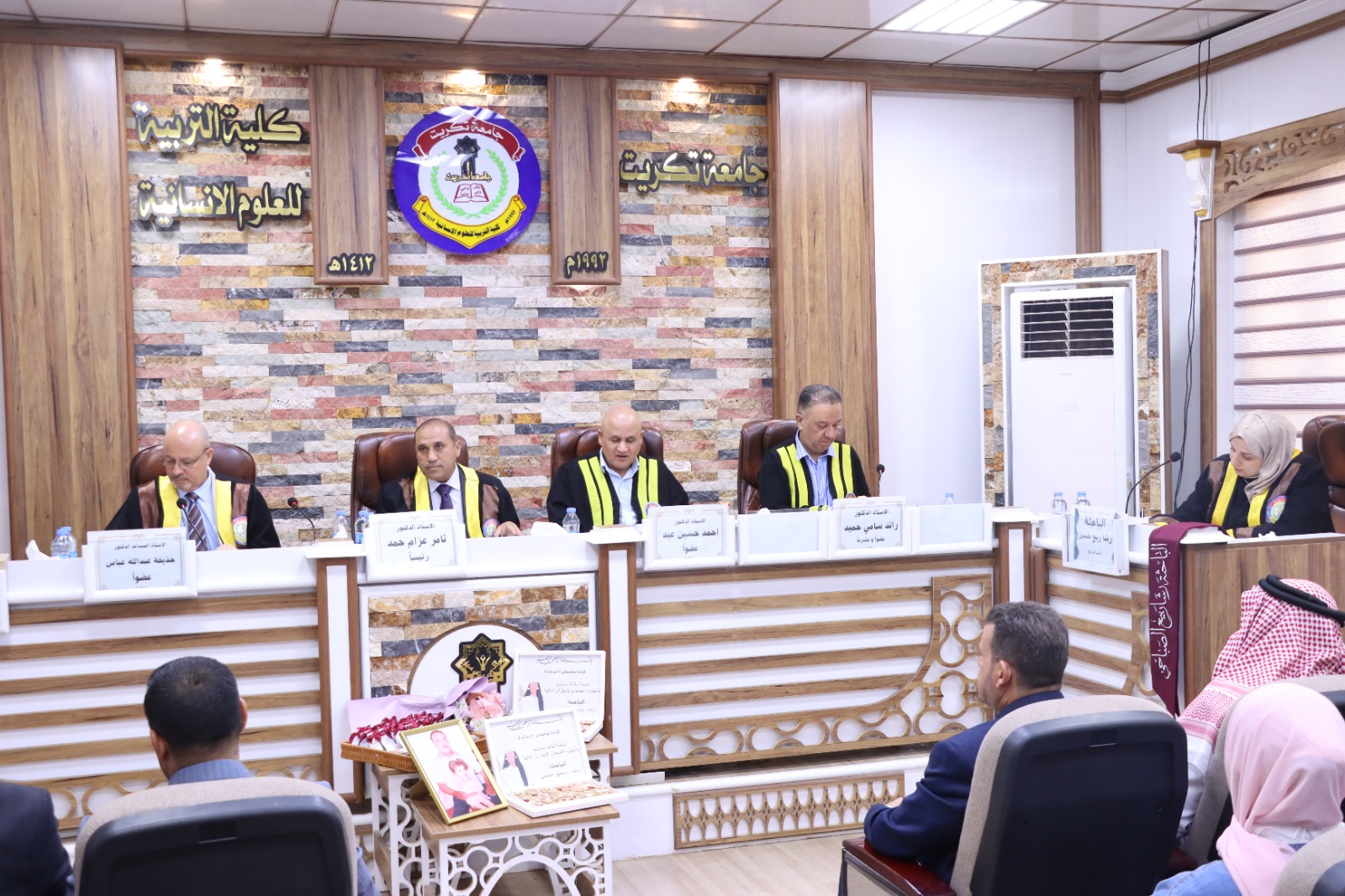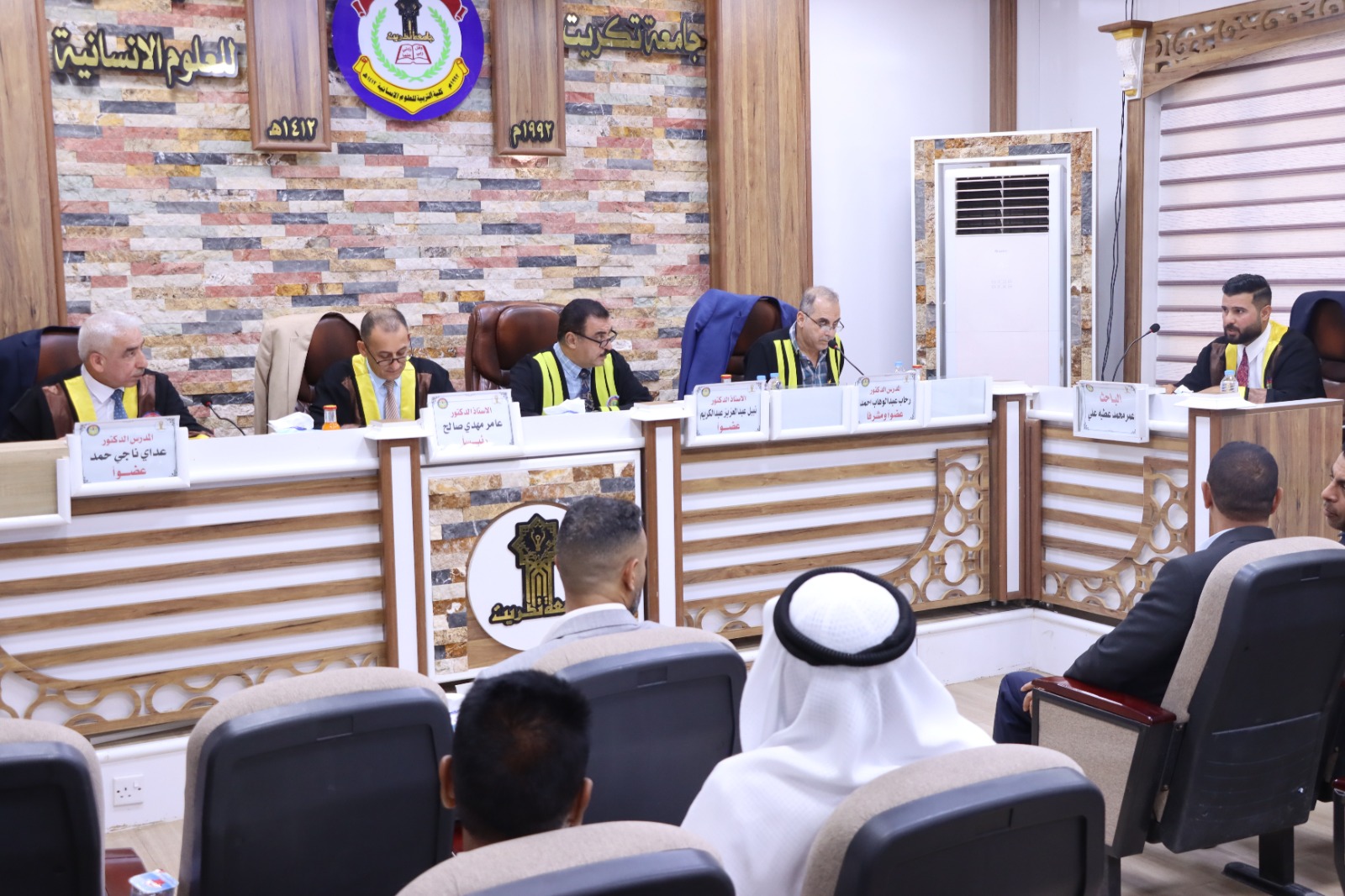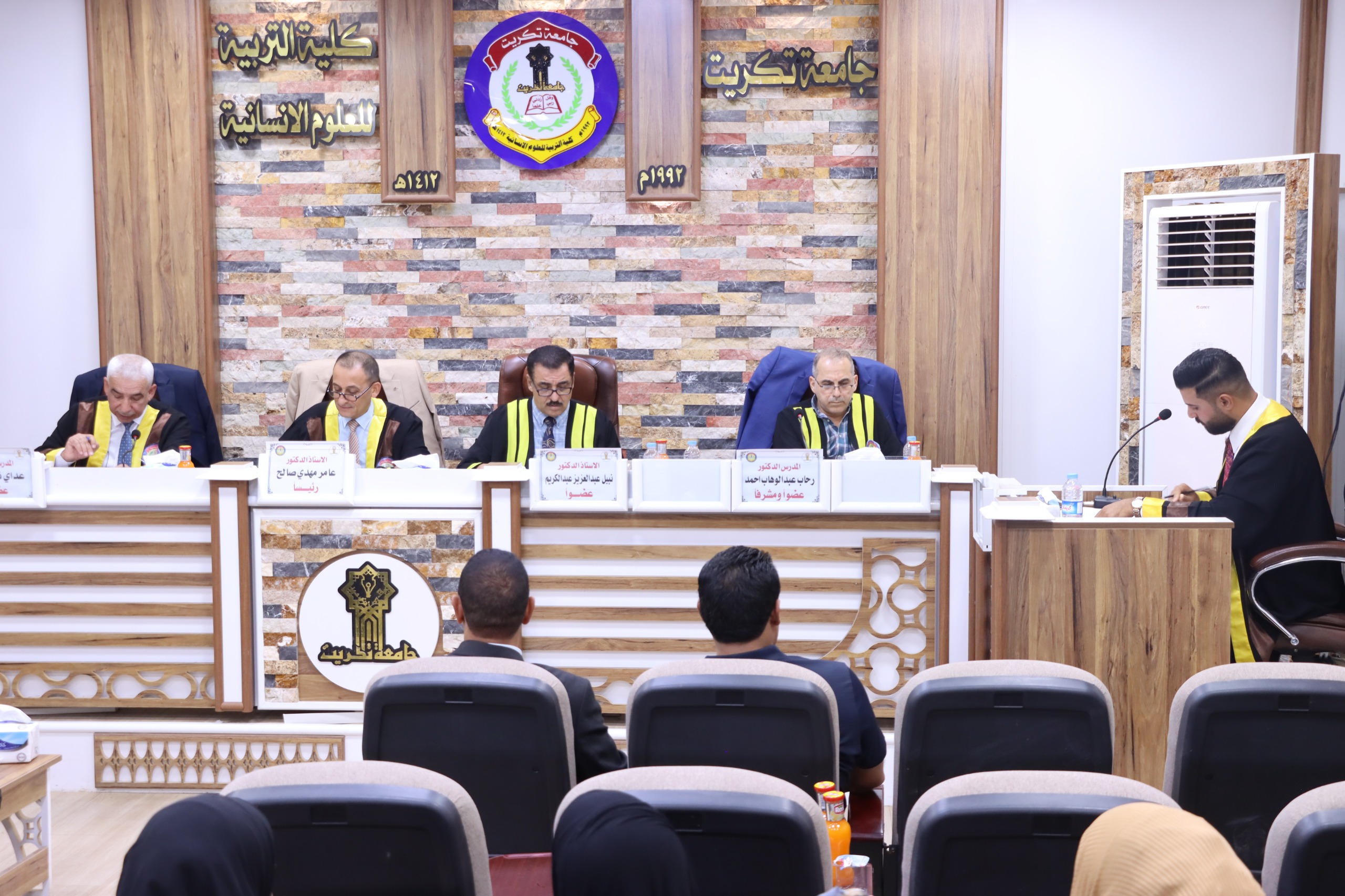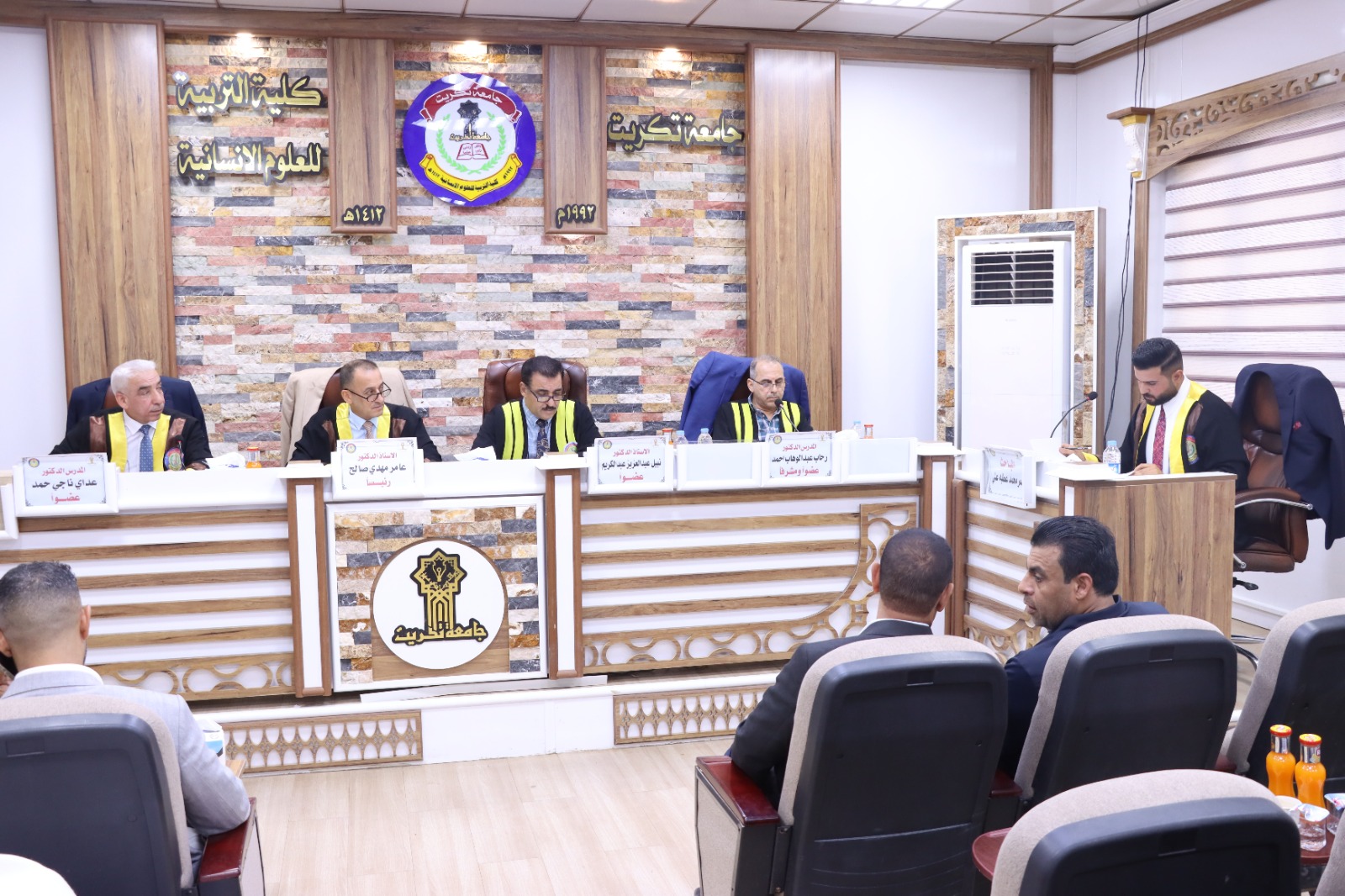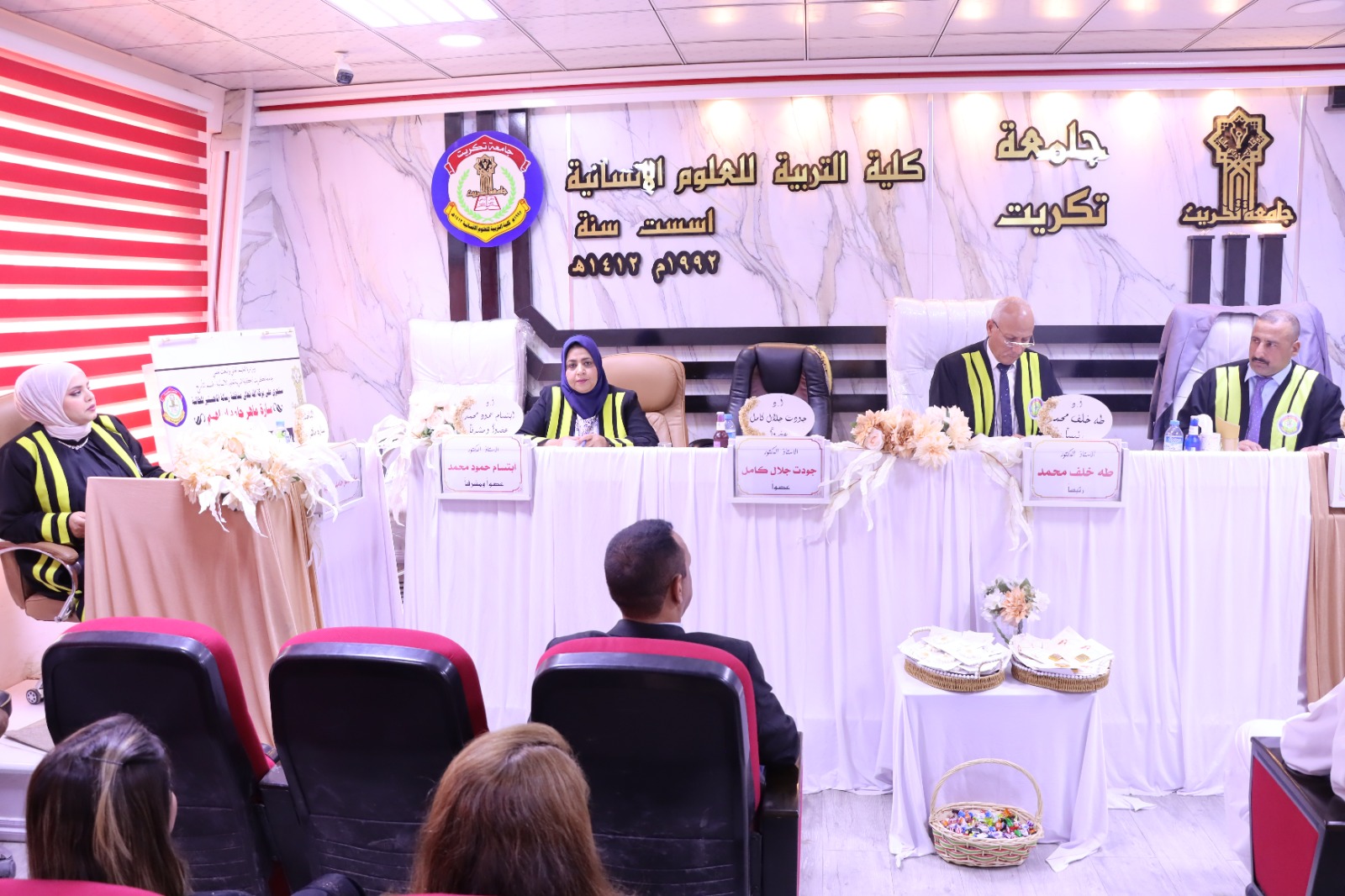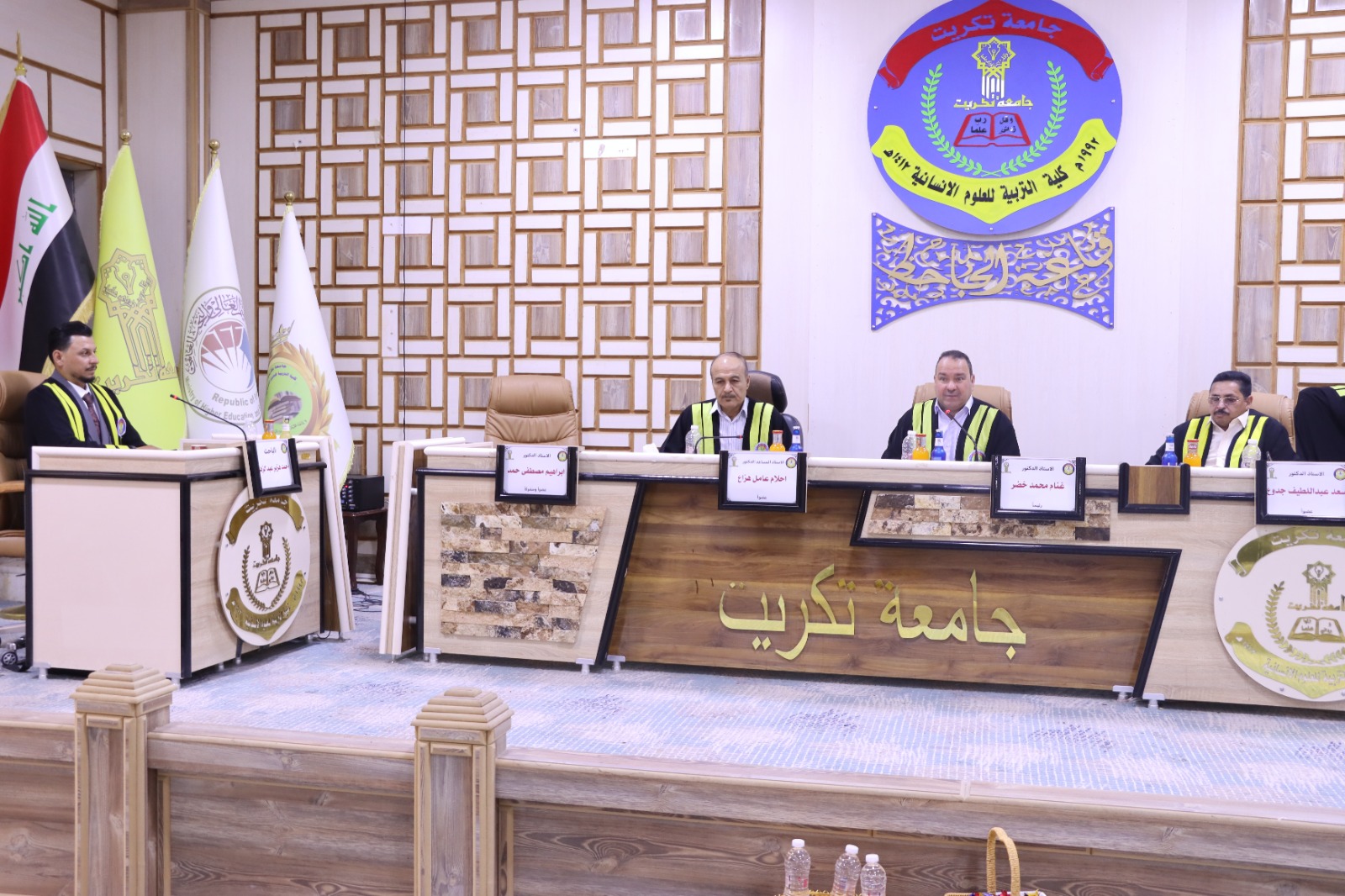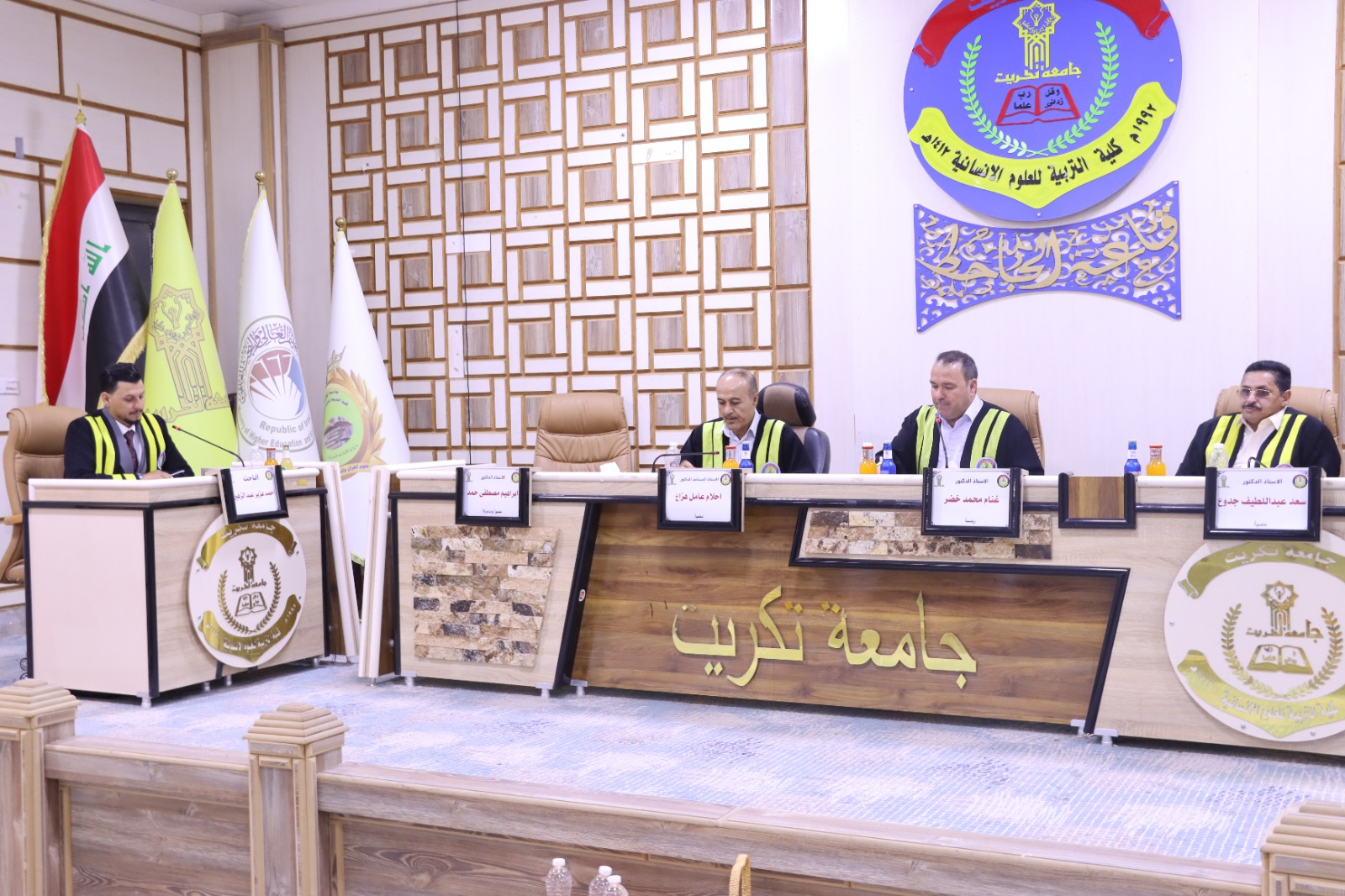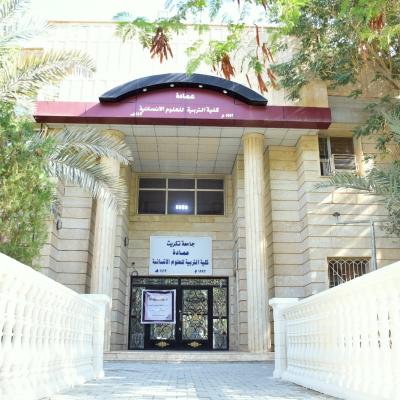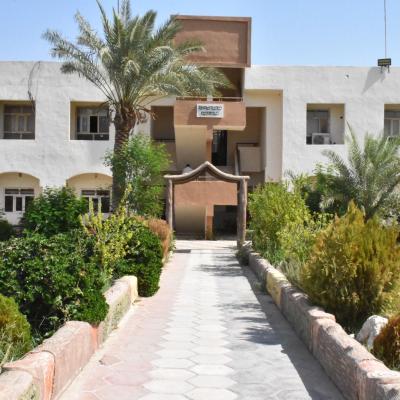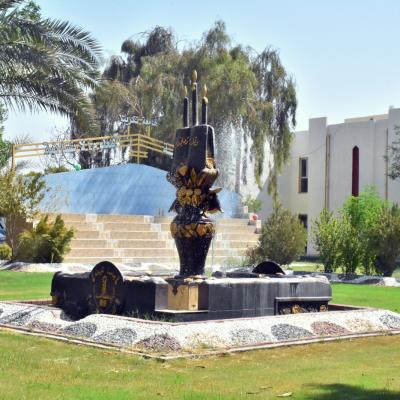On Monday, August 18, 2025, the Master’s thesis of Ms. Rasha Rabee Hussein was discussed at the College of Education for Humanities, Department of History. The thesis is titled:
“Floods, Epidemics, and Famines in Palestine (1516–1967): A Historical Study.”
This study aims to highlight Palestine, which is relatively small in area but encompasses diverse natural geographical regions with distinct characteristics. Coastal plains extend parallel to the Mediterranean Sea along the western border of Palestine. Beyond these coastal plains, mountain highlands stretch longitudinally and can be likened to the backbone of the Palestinian territories.
The research problem addresses the fact that Palestine has historically experienced many destructive floods, yet available sources provide insufficient information on the subject. Efforts were made to trace available data on floods; however, only limited information was obtained concerning their occurrence and the resulting damages documented in the sources. It is well known that floods are caused by heavy rains, which also trigger river torrents and may lead to mass fatalities as well as the spread of epidemics, diseases, and famines.
During the studied period, numerous epidemics and diseases spread, including plague, cholera, smallpox, leprosy, and measles. These were among the most prevalent diseases among the population of the Ottoman Empire in general, and Palestine in particular, as they struck repeatedly and periodically.
Accordingly, the study aimed to investigate the causes of floods, epidemics, and famines in Palestine between 1516 and 1967, examining their nature and the resulting impacts. It also explored the influence of ancient Islamic culture in confronting these crises and the preventive measures adopted by communities to combat the spread of epidemics and infectious diseases.
The study reached several conclusions, including:
-
Palestine has endured numerous calamities throughout its history; however, the lack of accurate sources made it difficult to comprehensively trace information related to these disasters.
-
The causes of these calamities were varied, including wars, invasions, and refugee influxes, which triggered humanitarian crises, diseases, and famines affecting the population.
-
Nature and the environment played a significant role in the emergence of disasters and the exacerbation of calamities, such as droughts and floods, impacting population stability.
The examination committee consisted of the following faculty members:
-
Prof. Dr. Thamer Azzam Hamad – University of Tikrit, College of Education for Humanities – Chair
-
Prof. Dr. Ahmed Hussein Abd – University of Tikrit, College of Education for Humanities – Member
-
Asst. Prof. Dr. Hudhaifa Abdullah Abbas – University of Tikrit, College of Arts – Member
-
Prof. Dr. Raed Sami Hameed – University of Tikrit, College of Education for Humanities – Member and Supervisor

